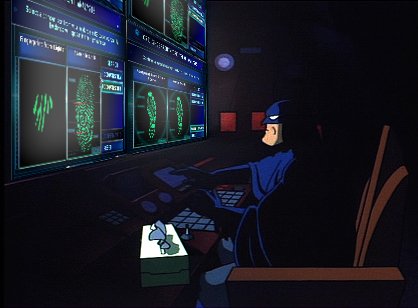The X-Men is a science-fiction superhero comicbook about a diverse group of mutants fighting "for their share of the world" or, in other words, for the equality and tolerance of their minority. It involves questions of sexuality, race, religion, civil rights, genocide, segregation, exclusion, persecution, etc., all of which are relevant to all of us as human beings.
In my case, I never grew out of liking the X-Men, because, in comparison to works like Avengers for example, the X-Men have much more substance, a genuine message for the reader.
I certainly wish that Marvel (or Fox, for the movies) would explore the social aspects of the X-Men comic books. I know Professor X (leader of the X-Men) and Magneto (leader of The Brotherhood of Mutants) have been compared to Martin Luther King Jr. and Malcom X in the comics, but it doesn't feel like they've taken advantage of the social value that these comic books could have. Take the issue of race, for example. There is a British character known as Psylocke who experiences a racial switch in the comic books. Her mind is transferred from her British body to the body of a Japanese assassin. However, this transfer is never really addressed in the comic books and instead the writers choose to objectify her through her sexually-explicit outfits (this from an online critique of the character).
There are a few X-Men comic books that have explored these aspects and they're considered some of the best ones, for example "Days of Future Past" on the aspect of genocide, as well as "God Loves, Man Kills" (the basis of X-Men 2), however, to my knowledge, the list doesn't get much longer.
It would be amazing if they could create a new line of X-Men comics grounded on its social and cultural aspects. Many people already write about the X-Men from an academic point of view on similar topics (for example there's a literature review on academia.edu about Storm and the X-Men as racial projects and I'm sure there's tons of other academic works on the X-Men). I think it'd be worth developing a socio-culturally relevant comicbook from this series. I mean, this was the reason Bryan Singer decided to eventually make X-Men 1 after years of begging on Fox's part, right? What do you think? Do you like when comicbooks acquire deeper meaning?
In my case, I never grew out of liking the X-Men, because, in comparison to works like Avengers for example, the X-Men have much more substance, a genuine message for the reader.
I certainly wish that Marvel (or Fox, for the movies) would explore the social aspects of the X-Men comic books. I know Professor X (leader of the X-Men) and Magneto (leader of The Brotherhood of Mutants) have been compared to Martin Luther King Jr. and Malcom X in the comics, but it doesn't feel like they've taken advantage of the social value that these comic books could have. Take the issue of race, for example. There is a British character known as Psylocke who experiences a racial switch in the comic books. Her mind is transferred from her British body to the body of a Japanese assassin. However, this transfer is never really addressed in the comic books and instead the writers choose to objectify her through her sexually-explicit outfits (this from an online critique of the character).
There are a few X-Men comic books that have explored these aspects and they're considered some of the best ones, for example "Days of Future Past" on the aspect of genocide, as well as "God Loves, Man Kills" (the basis of X-Men 2), however, to my knowledge, the list doesn't get much longer.
It would be amazing if they could create a new line of X-Men comics grounded on its social and cultural aspects. Many people already write about the X-Men from an academic point of view on similar topics (for example there's a literature review on academia.edu about Storm and the X-Men as racial projects and I'm sure there's tons of other academic works on the X-Men). I think it'd be worth developing a socio-culturally relevant comicbook from this series. I mean, this was the reason Bryan Singer decided to eventually make X-Men 1 after years of begging on Fox's part, right? What do you think? Do you like when comicbooks acquire deeper meaning?
Last edited:



